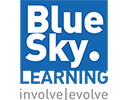
- February 7, 2024
- bluesky
- 0 Comments
- Team Building & Engagement
Navigating the Workforce Revolution: Leveraging L&D for Organizational Growth
Introduction: The Anthem of Dissatisfaction
Working all-day
Overtime hours for B***S*** pay.”
The first rebellious and pain-filled notes of Oliver Anthony’s country song ‘Rich Men North of Richmond’ rang out from YouTube in August of last year. It wasn’t long before the song travelled the globe and went viral. Endless reaction videos to this song began to populate YouTube.
It soon became the unexpected anthem of the dissatisfied workforce worldwide. Its resonance cut across borders, speaking to the universal discontent with working conditions. As the song’s poignant lyrics echoed the sentiments of many, it signalled a tipping point in the collective consciousness of workers everywhere.
Overtime hours for B***S*** pay.”
The first rebellious and pain-filled notes of Oliver Anthony’s country song ‘Rich Men North of Richmond’ rang out from YouTube in August of last year. It wasn’t long before the song travelled the globe and went viral. Endless reaction videos to this song began to populate YouTube.
It soon became the unexpected anthem of the dissatisfied workforce worldwide. Its resonance cut across borders, speaking to the universal discontent with working conditions. As the song’s poignant lyrics echoed the sentiments of many, it signalled a tipping point in the collective consciousness of workers everywhere.
The Pandemic Catalyst: Igniting Worker Agency

The COVID-19 pandemic acted as a catalyst, igniting a spark of change in the workforce. No longer willing to accept subpar working conditions, employees across industries began to assert their agency, demanding better treatment, fair compensation, and work environments conducive to growth and well-being. Deloitte’s 2023 report highlighted a significant rise in worker agency, with employees redefining their priorities and seeking value-aligned opportunities in the wake of unprecedented global upheaval.
Shifts in Worker Behavior: Demands and Priorities

LinkedIn and Deloitte’s findings revealed profound shifts in worker behaviour and expectations.
As remote work became the norm, employees embraced newfound flexibility and autonomy, challenging traditional notions of work-life balance and career trajectories. A third of respondents from Deloitte’s survey were willing to quit without another job lined up, signalling a growing willingness to prioritize personal well-being over job security. Meanwhile, two in five Gen Zs and Millennials rejected job offers that failed to align with their values, emphasizing the importance of purpose-driven work in today’s dynamic landscape.
According to Gallup’s State of the Global Workplace 2023 Report, 51% of the workforce is actively watching for or looking for a new job. 44% reported feeling stressed and 21% reported feeling angry from the previous day’s work interactions. This statistic is an alarming wakeup call for companies to pay close attention and to negotiate with employees’ personal priorities.
As remote work became the norm, employees embraced newfound flexibility and autonomy, challenging traditional notions of work-life balance and career trajectories. A third of respondents from Deloitte’s survey were willing to quit without another job lined up, signalling a growing willingness to prioritize personal well-being over job security. Meanwhile, two in five Gen Zs and Millennials rejected job offers that failed to align with their values, emphasizing the importance of purpose-driven work in today’s dynamic landscape.
According to Gallup’s State of the Global Workplace 2023 Report, 51% of the workforce is actively watching for or looking for a new job. 44% reported feeling stressed and 21% reported feeling angry from the previous day’s work interactions. This statistic is an alarming wakeup call for companies to pay close attention and to negotiate with employees’ personal priorities.
Employee Expectations: Aligning Organizational Goals

In the aftermath of the pandemic, employees are recalibrating their expectations and reevaluating their career paths. Career growth opportunities, upskilling and work life balance are the top three priorities for today’s workforce.

(Source: LinkedIn Learning Workplace Report 2023)
Companies that prioritize employee well-being and engagement are poised to thrive in this new era of work, fostering cultures of trust, transparency, and mutual respect.
Companies that prioritize employee well-being and engagement are poised to thrive in this new era of work, fostering cultures of trust, transparency, and mutual respect.
L&D as the Key Driver: Guiding Growth Trajectories

Gallup’s research underscores the importance of listening to employees and fostering a culture of open communication and collaboration. Companies that prioritize employee input are 21% more profitable than their competitors, highlighting the tangible benefits of employee-centric practices. In this context, the Learning & Development (L&D) function emerges as a crucial driver of organizational growth and adaptability, equipping employees with the skills and resources needed to thrive in an ever-changing landscape.
As job skill requirements evolve and technology reshapes the nature of work, L&D professionals play a pivotal role in guiding employees through continuous learning and development opportunities. By aligning individual growth trajectories with organizational objectives, L&D teams can unlock the full potential of both employees and organizations, driving innovation, productivity, and sustainable growth.
In harnessing worker agency and fostering a culture of lifelong learning, L&D professionals have the opportunity to shape the future of work and empower individuals to reach their full potential. Through proactive skill-building initiatives, personalized development plans, and innovative learning solutions, L&D teams can position their organizations as industry leaders, driving excellence and innovation in an increasingly competitive landscape.
What are your thoughts on the evolving role of L&D in today’s workforce?
How are you preparing for it?
As job skill requirements evolve and technology reshapes the nature of work, L&D professionals play a pivotal role in guiding employees through continuous learning and development opportunities. By aligning individual growth trajectories with organizational objectives, L&D teams can unlock the full potential of both employees and organizations, driving innovation, productivity, and sustainable growth.
In harnessing worker agency and fostering a culture of lifelong learning, L&D professionals have the opportunity to shape the future of work and empower individuals to reach their full potential. Through proactive skill-building initiatives, personalized development plans, and innovative learning solutions, L&D teams can position their organizations as industry leaders, driving excellence and innovation in an increasingly competitive landscape.
What are your thoughts on the evolving role of L&D in today’s workforce?
How are you preparing for it?
